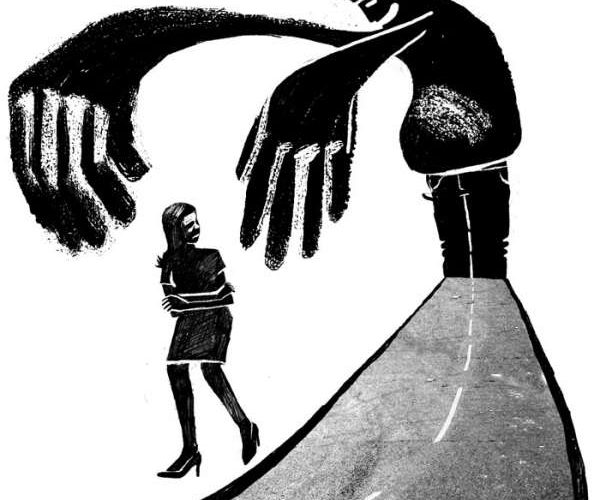Capitalism exploits the working class, and in particular women. This is done through the devaluation of women’s labour in the home—that is, the necessary work of reproducing and maintaining workers for the capitalist machine—and the devaluation of work done by women outside the home: the pay gap.*
Neither of these forms of oppression can be removed from the other, or from the capitalist system. Marxists should know and understand this connection.
What is less discussed in Marxist circles is the feminist understanding of advertising. Advertising is pervasive: it is the air that capitalism breathes and is part of our everyday lives. It would be foolish to deny it has an impact on us; and study after study has shown that it has, no matter how clear-headed we think we are. By virtue of how ever-present advertising is and the power it has to shape our views of the world, it too affects how women are viewed by men.
Compounding the economic oppression of women, women’s bodies are used as a marketing tool for selling products. Women are photoshopped into ridiculous idealised forms of beauty, depersonified and sexualised for the consumer market. Women are commodified alongside the product being sold: beer, food, men’s and women’s fashion, cars, cameras, web-site hosting—almost everything.
This simply does not happen to the same extreme for men. When it does, more often than not it’s played for laughs—like the comedy edition of GQ with Sacha Baron Cohen posed naked on the cover. This issue was sold in many places with a paper slip over the cover, as some shopkeepers viewed it as vulgar. Regular GQ covers with Jennifer Aniston, Jessica Fox and Lindsay Lohan suffered no such fate. A naked woman on a magazine cover, or in an ad, is acceptable.
These advertisements, and the messages they reinforce, are not isolated from the world they exist in: they both reflect and mould a perception of women as lesser.
The Whatsapp messages from the Ulster rugby rape trial show how far this level of consumption of women can go. In the players’ eyes the women referred to are not entirely human, with minds or wants of their own, but things to be possessed and used. This attitude isn’t unusual, and it isn’t confined to rugby-playing men either. Working-class men perpetuate the same odious attitudes without rebuke, an attitude that is often mirrored in advertising.
This is the deep-seated misogyny and sexism that most women encounter daily, and why the #IBelieveHer demonstrations were so large. Women could immediately identify with the woman in the case: most women have an experience of being catcalled at, of being blamed for their own harassment or assault, or having their experience and hurt played off as a joke: “no big deal” or just “lads being lads.”
As a result, women’s entry into politics will often be through a gendered lens. This is not to imply that women aren’t class-conscious, only that their political view is shaped by the first form of oppression they face daily. This will be because of their gender, and their activism will come from that sphere. Much like LGBT, black or ethnic minority activists will have their politics shaped by the first form of oppression they face. It is easy to see the root of oppression as class when it’s the only form of oppression you face.
One of the aims of the CPI in getting involved in repeal of the 8th, having a presence on International Working Women’s Day and all other “women’s causes” is to inject working-class politics into feminism. But it is not a one-way street: we must educate ourselves and understand the feminist politics of the day as well, to be able to critique it but also to see where the women’s movement is, what the issues are, and how they relate back to class and where we are failing.
The young women involved in #IBelieveHer, Cop On, Comrades, Strike4Repeal and many more one-off campaigns or stunts are trying to find a way to articulate their rage, to understand their oppression and to change the world. They are not middle-class feminists alone but many angry working-class women who feel they have no voice in working-class organisations. Engagement with working-class women is essential for our own development and growth as well as offering a space to these feminist activists for developing their own politics.
We cannot work on the assumption that young women know that, by virtue of our politics, our political tradition and ideology, we are fighting against the same evils of capitalism that they are. We must be forthright in our analysis and speak to them in terms they understand, and link their feminist understanding to our class one. We must not play down or sideline feminist understanding but meld it with our own. Unity is our strength; and if we cannot speak to the women of our class, who are we speaking to?
• For an article on the pay gap see “Capitalism knows a good thing when it sees it,” Socialist Voice, April 2018.






